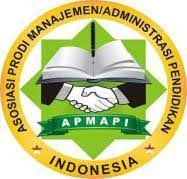Exploring The Influence of Work Commitment And Total Quality Management (TQM) on Teacher Performance: The Mediating Role of Self-Efficacy
DOI:
https://doi.org/10.21009/improvement.v11i1.44678Keywords:
Self-efficacy, work commitment, TQM, teacher performance, PLS-SEMAbstract
This research explores the role of self- efficacy as a mediator in the influence between work commitment, Total Quality Management (TQM), and teacher performance. The survey method was used to collect data based on purposive sampling from 55 teachers from 3 junior high schools in Ponorogo Regency. Data collection was carried out using a questionnaire consisting of a Likert scale with 5 alternative answers. PLS-SEM analysis was used to analyze the data and test the model context. The results of the analysis show that work commitment has a significant effect on teacher self-efficacy and performance. Furthermore, self-efficacy was proven not to mediate the influence between work commitment and Total Quality Management on teacher performance. These findings highlight the importance of self-efficacy in facilitating the development of teacher performance through work commitment and the implementation of total quality management. The practical implication of this research is the importance of creating a work environment that supports the development of teacher self-efficacy. Educational institutions can provide social support, recognition of teacher contributions, and opportunities to participate in professional development activities. By creating a conducive environment to strengthen teacher self-efficacy, work commitment, and TQM implementation are hoped to run more effectively.
Downloads
Published
How to Cite
Issue
Section
License
Copyright (c) 2024 Alfina Damayanti Istiqomah, Dian Pratiwi, Abdul Kholiq

This work is licensed under a Creative Commons Attribution-NonCommercial-ShareAlike 4.0 International License.
Authors who publish with this Journal agree to the following terms:
- Author retain copyright and grant the journal right of first publication with the work simultaneously licensed under a creative commons attribution licensethat allow others to share the work within an acknowledgement of the work’s authorship and initial publication of this journal.
- Authors are able to enter into separate, additional contractual arrangementfor the non-exclusive distribution of the journal’s published version of the work (e.g. acknowledgement of its initial publication in this journal).
- Authors are permitted and encouraged to post their work online(e.g. in institutional repositories or on their websites) prior to and during the submission process, as it can lead to productive exchanges, as well as earlier and greater citation of published works.
-
Users/public use of this website will be licensed to CC BY-NC-SA (Attribution & Non-Commercial-ShareAlike)


